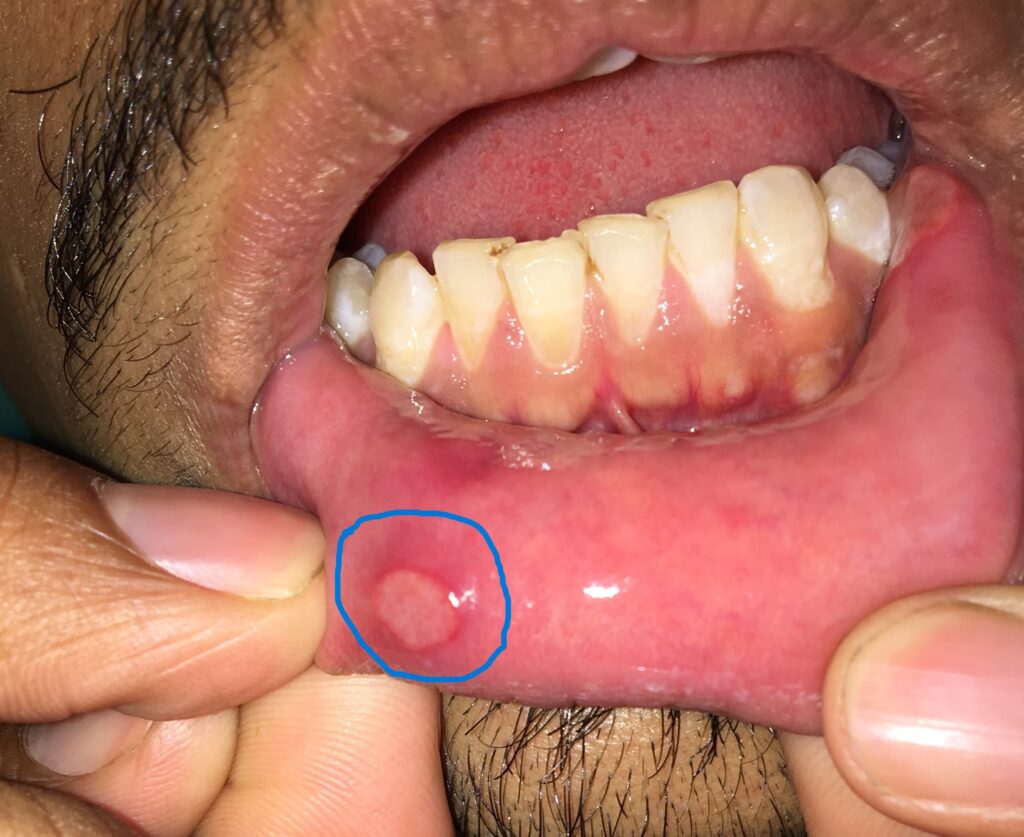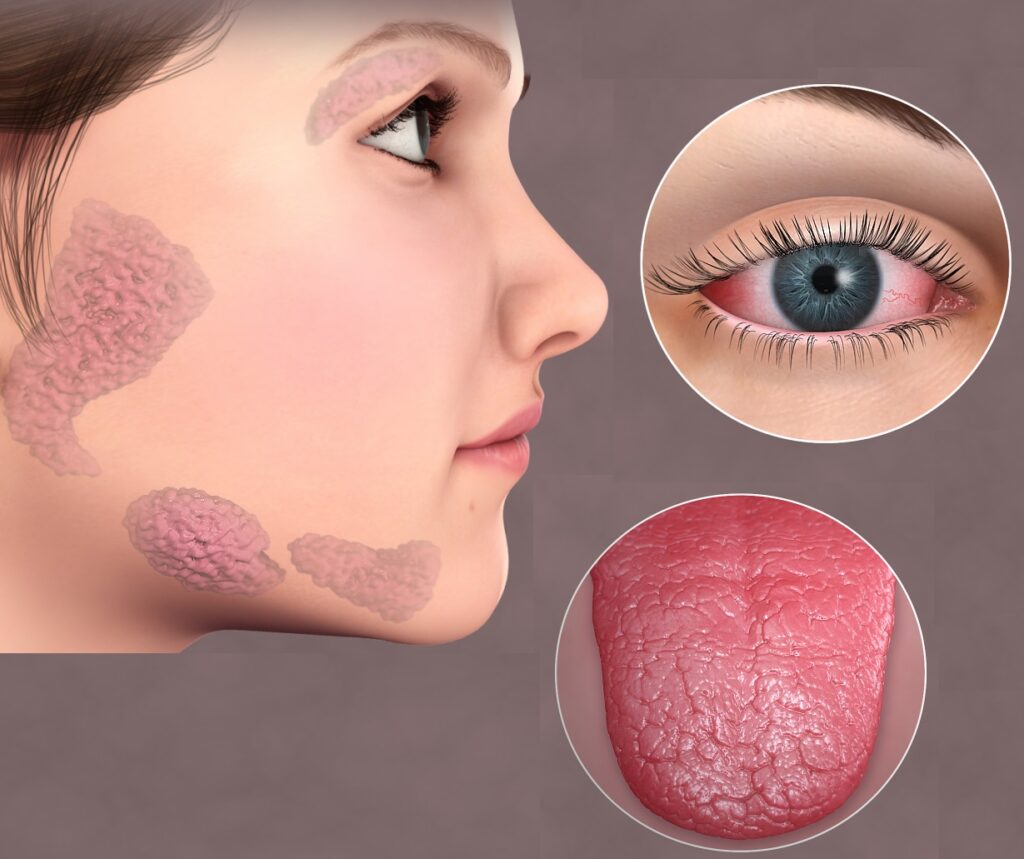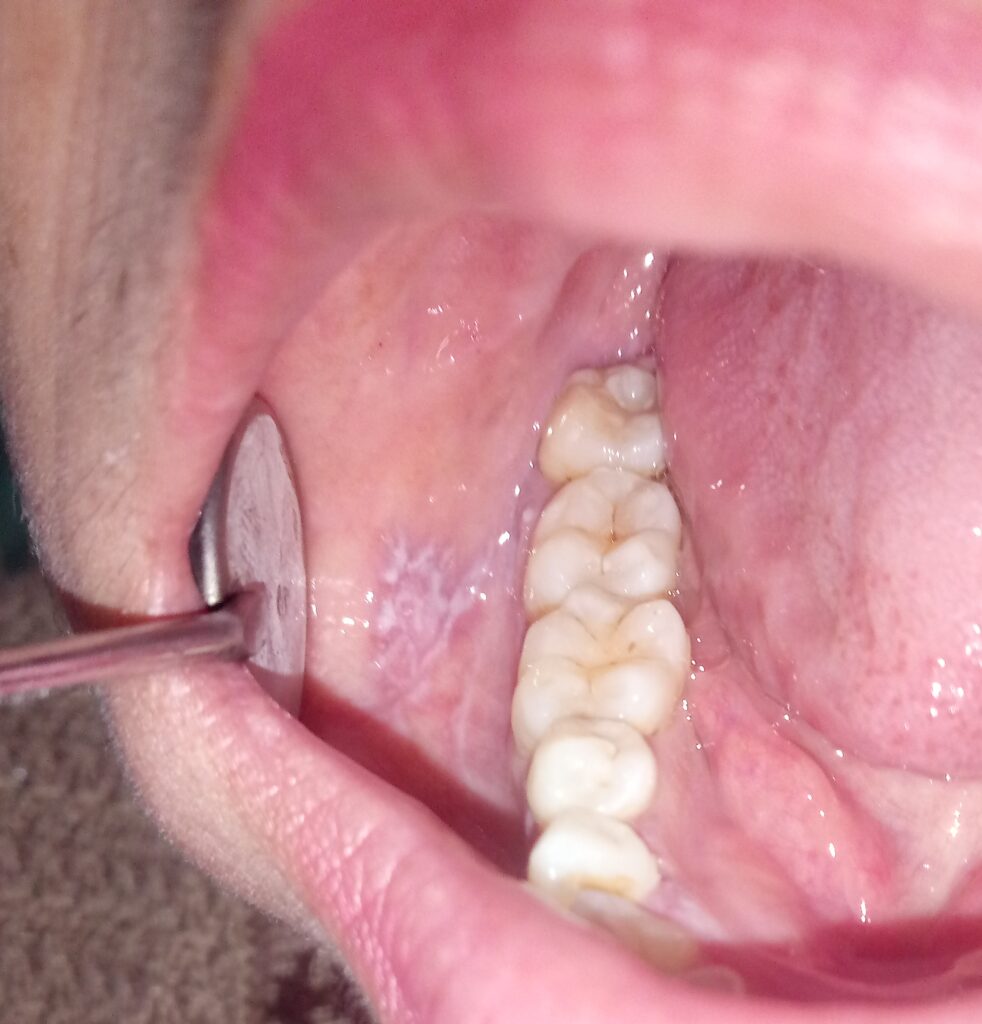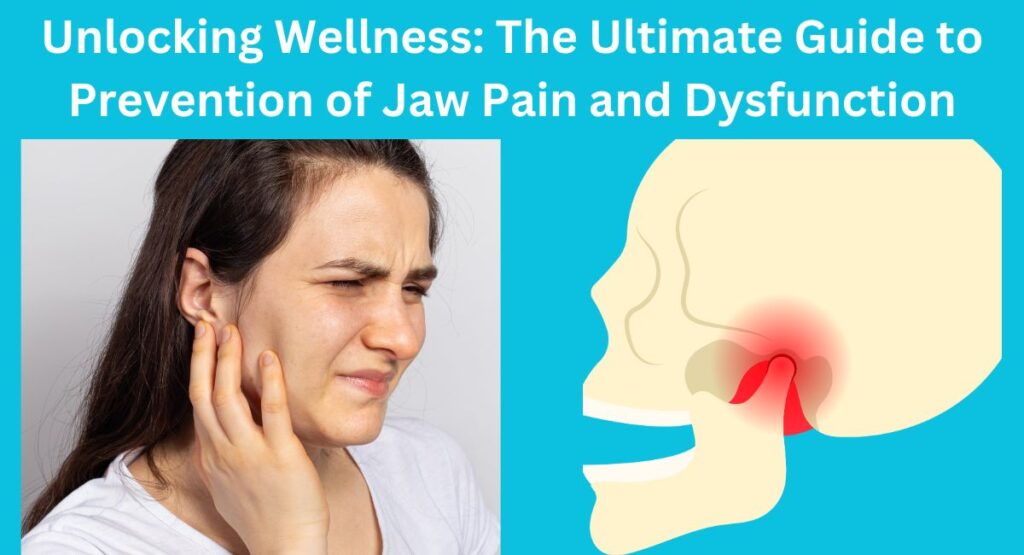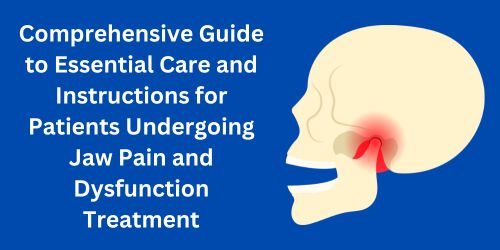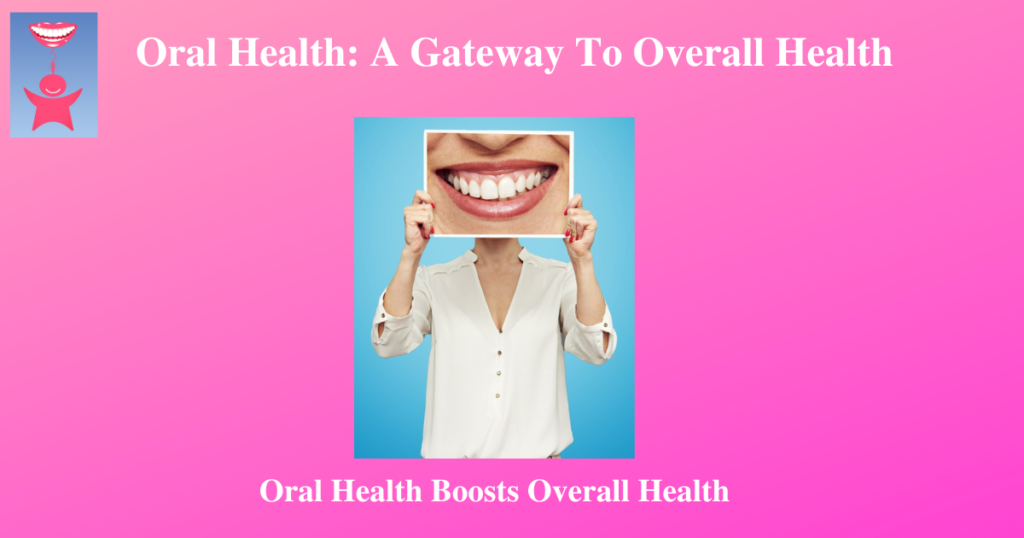
Introduction
Hello Friends…welcome to Gateway of Health. The sole purpose of this website/blog is to educate everyone about dental and oral health and its importance in overall health and well-being. However, it’s not just about teeth but life having teeth. It will also provide important information about how to maintain a healthy life. In this article, we will learn about oral health, oral hygiene, and their importance in overall health.
Importance of Oral Health
The mouth is the only natural way of food intake. The mouth has the second largest and most diverse microbiota after the gut because of the easy availability of churned food, hiding places, and easy access to the inner body. It contains all types of microbes (bacteria, fungi, viruses, protozoa, etc.). In other words, the mouth provides food and shelter to all microbes and, thus creates a favorable environment for their survival.
The mouth has teeth, gums, tongue, cheek, roof (palate), and floor. Teeth and gums usually have many natural as well as developmental grooves. Similarly, the areas between the teeth are also not easily accessible and cleanable. Such areas favor food lodgement and also provides shelter to micro-organisms.
Primitive people have comparatively lesser cavities or gum problems, despite the fact they never brushed their teeth. Their raw (unprocessed) diet containing a great deal of roughage cleanses teeth during chewing excursions. The diet itself kept the teeth clean and healthy by flushing away food and microbial deposits (plaque) from the surfaces of teeth and gums. It’s very difficult for microbes to break down unprocessed, raw food to satisfy their hunger. It’s like giving them raw seeds to eat. Such food keeps control over microbes and maintains the mouth and gut ecosystem.
But at the same time, excessive roughness in the primitive diet had also caused severe wear of their teeth. Therefore, primitive people had premature wear of teeth. When humans shifted to farming and started eating more carbs/grains (sugar), bacteria in their mouths flourished, pouring out acids that rotted away teeth. The incidence of tooth decay was much more among first farmers than hunter-gatherers. In modern times, we tend to eat more refined (highly processed) sugary food to satisfy our craving for taste. Such food is detrimental not only to teeth but to general health also. Soft refined food tends to cling tenaciously to the sulci of teeth and gums are not removed easily. A modern refined diet made us weaker and more porous. It’s very easy for microbes to break down such refined food. We need to balance these factors to maintain a healthy mouth as well as body.
That’s why tooth decay and gum diseases are one of the most common diseases affecting mankind despite many preventive and treatment measures. Tooth decay and gum problems are nothing but bacterial infection origin inflammation. Hence, Good oral health is necessary for an individual’s overall health and well-being.
Importance of Oral Health in Overall Health
A modern refined (soft and sticky) diet made our mouth the constant source of microbial inflammation. The diverse microflora, their toxins, and inflammatory products from gum diseases get easy access to the inner body through dilated blood vessels of inflamed gums that can cause heart attacks (by clogging of important arteries), endocarditis (heart infections), pneumonia (lung infections), diabetes, cancers, infertility, sepsis in immune-compromised individuals and many other ill-effects on the body. Poor oral hygiene during pregnancy can affect the developing baby and can lead to complications such as miscarriage, low birth weight, and premature delivery. Poor oral health is not only linked with systemic diseases/conditions but badly influences their entire course. Good oral hygiene not only prevents the spread but the severity of respiratory pandemics such as Covid-19 infection. So, just by keeping your teeth and mouth clean, you can not only save your but others’ lives too.
The mouth is constantly exposed to a variety of germs and other environmental factors which causes constant inflammation. The continuous process of inflammation and repair made the mouth a sensitive organ. Hence, many body diseases often manifested (seen) in the mouth and can be identified early from their oral picture. Poor oral health affects systemic health and vice-versa. That’s why the mouth is not only the mirror but a gateway to overall health.
Importance of Prevention of Diseases
Today’s Medical Science is well-equipped with advanced tools and techniques. But unfortunately, it focuses more on detection and treatments rather than on the causes and prevention of diseases. We too often spend time and money on correcting the problem but always ignore the actual cause of the problem. We all know “prevention is better than cure” but we ignore it. You need to “Hit the cause before it hit you”. It’s a “need of the hour”. Remember, all of our problems in life can be reversible but not in the case of health and time. We cannot reverse lost health. Prevention is the only solution to all of our problems.
Oral hygiene aids such as toothbrushes, toothpaste, and dental floss required to maintain good oral hygiene are very cost-effective. Their cost is negligible compared to the cost of dental treatments.
How to Keep your teeth and gums healthy
To keep your mouth healthy, practice good oral hygiene daily.
- Brush your teeth gently but thoroughly at least twice a day for 2-3 minutes each time. Use a soft-bristled toothbrush and fluoride toothpaste with low abrasiveness. Use circular, up-down, and short back-and-forth strokes. Give more attention to biting surfaces and areas between the back teeth. Replace your brush every 3 to 4 months, or once you noticed bristles are frayed or worn.
- Floss your teeth at least once a day, especially after dinner before going to bed. Floss is not a substitute for the toothbrush but it is equally important. It removes food particles from areas between the teeth that a brush can’t reach.
- Gently clean your tongue using a tongue brush/blade.
- Gently massage your gums at least once a day. Most importantly, chew your food thoroughly. This not only helps grow your child’s jaw but prevents many disorders such as crooked teeth/jaws.
- Use water floss at least once a day.
- Avoid daily use of anti-germ mouthwashes unless advised. Mouthwashes should be used in specific situations, for specific periods of time, and only if advised. It is recommended for acute infections, hospitalized patients, or during the postoperative period. Mechanical measures (toothbrush, floss) proved better than chemical measures in keeping the teeth free from food particles. Mouthwashes also cause regular exposure to chemicals and antibiotics.
- Eat a high-fiber, low-sugar, low-salt, and low-fat diet that includes plenty of fruits and vegetables. Avoid/limit highly refined sugary food/drinks. Avoid snacks between meals. Drink plenty of water daily. Rinse your mouth with water after each meal.
- Avoid tobacco use and other deleterious habits. Learn more about how to quit smoking in our article, “Quitting Tobacco: From Smokes to Success – Your Journey to Becoming Healthier, Wealthier, and Famous.”
- Regular dental check-ups and cleaning at least every 6 months. Periodic self-examination of your teeth and mouth is also necessary.
Most importantly, you need to start all these oral hygiene practices from early childhood and maintain them throughout life.
Conclusion
Good general health and quality of life cannot be complete without good oral health. Oral hygiene is the most effective and affordable method of preventing not just oral but systemic diseases and thereby improving overall health and well-being. No wealth is bigger than health. You can buy anything anywhere anytime but not in good health. Health is the greatest richness of life and saves a lot for you. All you need is to start early and practice consistently throughout your life.
FAQ
Ques – 1. What is oral health?
Oral health means the health of your teeth, gums, jaws, and the whole oral-facial ecosystem that allows us to do a variety of functions such as chewing, swallowing, speaking, smiling, breathing, and overall well-being. Some of the most common diseases that affect our oral health include tooth decay/cavities, gum diseases, crooked teeth, edentulism, wisdom tooth infection, bad breath, and oral cancer.
Ques – 2. What is oral hygiene?
Oral hygiene is the practice of keeping your teeth, gums, and mouth clean and free of diseases by regular brushing and flossing your teeth, especially the areas between the teeth, cleaning your tongue, massaging your gums, eating a healthful diet, avoiding tobacco use and periodical self-inspection as well as visiting your dentist for examination, X-rays and cleaning of teeth. It is very important that oral hygiene practices be carried out on a regular basis to enable the prevention of diseases.
Ques – 3. What is the importance of oral hygiene?
Good oral hygiene is essential in improving an individual’s oral health as well as overall well-being.
Ques – 4. What is the importance of good oral health?
Good overall health and quality of life cannot be complete without good oral health. Oral health is a gateway to overall health. Poor oral health not only affects oral-facial functions but systemic health too. Poor oral health is not only linked with systemic diseases but badly influences their entire course. Good oral health also boosts your confidence and positivity. Good oral health reduces the risk of heart attacks, lung infections, diabetes, cancers, infertility, and many other ill effects on your body.
Ques – 5. Why prevention is better than cure?
Prevention is better than cure because diseases always cause some damage to our physical as well as mental health, and also loss of time and money on treatment. Prevention also saves us from long-term suffering and the harmful effects of medications.
Ques – 6. Are aids/products required to maintain oral hygiene costlier?
oral hygiene aids such as toothbrushes, dental floss, etc. are very cost-effective. Their cost is negligible compared to the cost of dental treatments.


